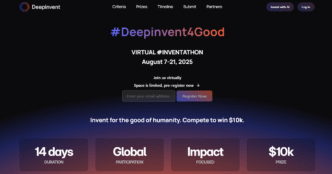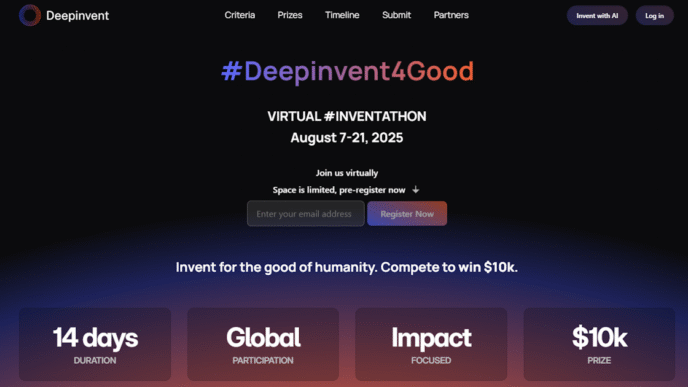Artificial Intelligence (AI) is transforming marketing in exciting ways. By using smart tools, businesses can create personalized campaigns and make their advertising budgets work harder. This article explores how AI helps marketers understand their customers better, tailor their messages, and optimize spending for better results.
Key Takeaways
- AI helps businesses understand their customers through data analysis.
- Personalization in marketing leads to better engagement and sales.
- Smart tools can automate ad spending and improve budget efficiency.
- Using AI can simplify the process of creating ads and monitoring their performance.
- Future marketing strategies will increasingly rely on AI for insights and predictions.
Understanding the Role of AI in Marketing
Defining AI in Marketing
AI in marketing means using smart technology to help businesses understand their customers better. This includes tools that analyze data, automate tasks, and improve how companies connect with their audience. AI tools can help marketers make decisions based on real-time data, leading to more effective strategies.
Historical Context and Evolution
The journey of AI in marketing started in the mid-20th century. Initially, marketers used simple algorithms for tasks like customer segmentation. Over the years, as technology advanced, AI tools became more sophisticated. By the 1990s, the rise of the internet allowed for better data collection and analysis. Today, AI is essential in marketing, helping businesses optimize their strategies and improve customer experiences.
Key Benefits of AI in Marketing
AI offers several advantages for marketers:
- Improved Customer Insights: AI analyzes vast amounts of data to provide deeper understanding of customer behavior.
- Increased Efficiency: Automation of repetitive tasks allows marketers to focus on strategy and creativity.
- Better Targeting: AI helps in creating personalized marketing campaigns that resonate with individual customers.
AI is transforming marketing by enabling businesses to work smarter, not harder. By leveraging AI tools, companies can enhance their strategies and connect with customers more effectively.
| Benefit | Description |
|---|---|
| Improved Insights | Deeper understanding of customer behavior |
| Increased Efficiency | Automation of repetitive tasks |
| Better Targeting | Personalized marketing campaigns |
Personalizing Marketing Campaigns with AI
AI-Driven Customer Segmentation
AI helps businesses understand their customers better by dividing them into groups based on their behaviors and preferences. This process, known as customer segmentation, allows marketers to create targeted campaigns that speak directly to each group. For example, a clothing brand might segment customers into categories like “young adults” or “parents” to tailor their marketing messages accordingly.
Tailoring Content to Individual Preferences
With AI, companies can customize content to fit individual tastes. By analyzing data, AI can suggest products or services that a customer is likely to enjoy. This means that when a customer visits a website, they might see items that match their interests, making their shopping experience more enjoyable. Personalized content can lead to higher engagement and sales.
Case Studies of Personalized Campaigns
Here are a few examples of how companies have successfully used AI to personalize their marketing campaigns:
- Netflix: Uses AI to recommend shows based on viewing history, keeping users engaged.
- Amazon: Analyzes customer behavior to suggest products, enhancing the shopping experience.
- Spotify: Creates personalized playlists for users, increasing user satisfaction and retention.
By using AI, businesses can create marketing campaigns that feel personal and relevant to each customer, leading to better results and happier clients.
In summary, AI is transforming how companies approach marketing by enabling them to personalize campaigns effectively. This not only improves customer satisfaction but also boosts sales and brand loyalty.
Optimizing Ad Spend Through AI
AI for Budget Allocation
AI helps businesses make the most of their advertising budgets. By analyzing data, AI can determine where to allocate funds for the best results. Here are some key benefits of using AI for budget allocation:
- Real-time adjustments: AI can change budgets based on current performance.
- Data-driven decisions: It uses historical data to predict future outcomes.
- Efficiency: Saves time by automating budget management.
Predictive Bidding Strategies
Predictive bidding is a smart way to set ad prices. It uses AI to guess how likely someone is to click on an ad. This method helps in:
- Maximizing ROI: Bids are adjusted to get the best return on investment.
- Targeting the right audience: AI identifies users who are more likely to convert.
- Dynamic adjustments: Bids can change in real-time based on user behavior.
Real-Time Performance Monitoring
Monitoring ad performance is crucial. AI tools can track how ads are doing and suggest changes instantly. Here’s how:
- Continuous analysis: AI looks at data all the time to find trends.
- Quick feedback: It provides immediate insights on what’s working and what’s not.
- Automated reporting: Users receive regular updates without manual checks.
Using AI for ad spend optimization not only saves money but also improves overall campaign effectiveness.
In summary, AI is transforming how businesses manage their advertising budgets, making it easier to reach goals and maximize returns.
AI Tools for Marketing Automation
Top AI Marketing Platforms
AI marketing platforms are changing how businesses manage their marketing efforts. Here are some popular tools:
| Tool Name | Key Features | Benefits |
|---|---|---|
| Ringy | Suggested Replies, AI Chat Bots | Helps professionals communicate better and faster. |
| Drift | Conversational Chatbots, Lead Qualification | Increases lead conversion rates through quick responses. |
| HubSpot | AI-Driven Analytics, Automated Workflows | Streamlines sales processes and improves engagement. |
| Conversica | Automated Lead Engagement, Multi-Channel Communication | Boosts productivity by automating follow-ups. |
| Pega | Next-Best-Action Recommendations | Enhances customer satisfaction with real-time insights. |
Features to Look For
When choosing an AI marketing tool, consider these important features:
- Data Integration: Combines data from different sources for a complete view.
- Real-Time Analytics: Provides immediate insights to adjust strategies quickly.
- Automation Workflows: Automates repetitive tasks to save time.
Integration with Existing Systems
Before selecting an AI tool, ensure it fits well with your current systems. Here are some points to consider:
- Business Needs: The tool should solve specific challenges.
- Ease of Integration: It should work smoothly with your existing platforms.
- Scalability: The tool must grow with your business.
AI tools are essential for improving marketing strategies and enhancing customer experiences. They help businesses stay competitive by providing valuable insights and automating tasks.
Enhancing Customer Experience with AI
AI-Powered Customer Insights
AI is changing how businesses understand their customers. By analyzing large amounts of data, AI can reveal important customer insights. This helps companies know what their customers want and need. Here are some key benefits of using AI for customer insights:
- Better understanding of customer preferences.
- Ability to predict future buying behaviors.
- Identification of trends that can improve products and services.
Personalized Customer Journeys
With AI, businesses can create personalized customer journeys. This means that every interaction a customer has with a brand can be tailored to their specific needs. For example:
- Mapping out the customer journey from first contact to purchase.
- Using data to customize marketing messages.
- Addressing customer pain points effectively.
Improving Customer Retention
AI can also help in improving customer retention. By analyzing customer behavior, businesses can identify which customers are at risk of leaving. This allows them to take action before it’s too late. Some strategies include:
- Sending personalized offers to loyal customers.
- Implementing feedback loops to understand customer satisfaction.
- Using predictive analytics to anticipate customer needs.
AI is not just a tool; it’s a game-changer in how businesses connect with their customers. By leveraging AI, companies can create experiences that are not only engaging but also meaningful.
In summary, AI enhances customer experience by providing insights, personalizing journeys, and improving retention strategies. This leads to happier customers and better business outcomes.
AI in Content Creation and Management
Automated Content Generation
AI tools are now capable of creating various types of marketing content quickly and efficiently. These systems can produce ad copy that often outperforms human-written content. By using technologies like natural language processing (NLP) and natural language generation (NLG), businesses can save time and resources while maintaining quality.
Dynamic Creative Optimization
With AI, marketers can automatically generate multiple variations of ads. This means that a single ad can be transformed into different formats and designs tailored for various platforms. Here are some benefits of this approach:
- Increased efficiency: No more manual variations.
- Better targeting: Ads can be customized based on audience preferences.
- Cost-effective: Reduces the need for extensive creative teams.
Content Performance Analytics
AI tools also help in analyzing how well content performs. By tracking metrics like engagement and conversion rates, businesses can make informed decisions. Here’s a simple table showing key metrics to monitor:
| Metric | Description | Importance |
|---|---|---|
| Engagement Rate | Measures how users interact with content | Indicates content effectiveness |
| Conversion Rate | Percentage of users taking action | Shows ROI of campaigns |
| Bounce Rate | Percentage of visitors leaving quickly | Helps improve content quality |
AI is revolutionizing how we create and manage content, making it easier to engage customers and optimize marketing strategies.
By leveraging AI in content creation, businesses can enhance their marketing efforts and stay ahead in a competitive landscape.
Challenges and Considerations in AI Marketing
Data Privacy and Security
In the world of AI marketing, data privacy is a major concern. Companies must ensure that they protect customer information and comply with regulations like GDPR. This means implementing strong security measures to prevent data breaches and unauthorized access.
Ethical Considerations
Using AI in marketing raises ethical questions. Businesses need to think about how they collect and use data. They should be transparent with customers about their practices and ensure that their AI tools do not promote bias or discrimination.
Overcoming Implementation Barriers
Many companies face challenges when adopting AI tools. Here are some common barriers:
- High Costs: Initial investments can be steep, including software and training expenses.
- Integration Issues: New tools must work well with existing systems, which can be complicated.
- Data Quality: AI relies on accurate data. Poor data can lead to ineffective marketing strategies.
Implementing AI in marketing can be a game-changer, but it requires careful planning and consideration of various challenges.
While AI offers exciting opportunities for marketing, businesses must navigate these challenges to ensure successful implementation and ethical use. By addressing data privacy, ethical concerns, and implementation barriers, companies can harness the full potential of AI in their marketing strategies.
Future Trends in AI Marketing
The landscape of AI marketing is evolving rapidly, driven by new technologies and changing consumer needs. The future looks bright for AI in marketing. Here are some key trends to watch:
Emerging Technologies
- Deep Learning: This technology helps in analyzing large data sets for better customer insights.
- Natural Language Processing (NLP): NLP allows machines to understand human language, improving customer interactions.
- Computer Vision: This enables AI to interpret visual data, enhancing marketing strategies.
Integration with Other Technologies
- IoT (Internet of Things): AI combined with IoT provides real-time data from connected devices, allowing for targeted marketing.
- Blockchain: This technology enhances data security and transparency, building consumer trust.
Evolving Consumer Expectations
- Personalization: Customers now expect tailored experiences. AI can help deliver personalized content and recommendations.
- Instant Support: AI chatbots provide immediate assistance, improving customer satisfaction.
Regulatory Developments
- Data Privacy: As laws like GDPR evolve, businesses must adapt to ensure compliance and maintain trust.
- Data Governance: Implementing strong data practices is essential to avoid legal issues.
Voice Search and Virtual Assistants
- Optimization for Voice: Marketers need to adjust their content for voice search to stay relevant.
- Personalized Experiences: Virtual assistants can enhance customer interactions by offering tailored recommendations.
Augmented Reality (AR) and Virtual Reality (VR)
- Immersive Experiences: AR and VR can create engaging marketing campaigns, like virtual try-ons for products.
- Interactive Campaigns: These technologies allow customers to interact with brands in new ways, increasing engagement.
Hyper-Personalization
- Real-Time Data Analysis: AI can analyze customer behavior instantly, allowing for immediate adjustments in marketing strategies.
- Tailored Messaging: Marketing messages can be customized based on individual preferences, leading to higher conversion rates.
The integration of AI in marketing is not just a trend; it’s a necessity for businesses aiming to thrive in a competitive landscape. By embracing these advancements, companies can enhance their strategies and better connect with their audiences.
Predictive Customer Insights
- Anticipating Needs: Predictive analytics helps marketers foresee customer needs, optimizing their strategies accordingly.
- Efficient Marketing Spend: By understanding what works best, businesses can allocate their budgets more effectively.
In summary, the future of AI in marketing is filled with opportunities. By staying ahead of these trends, businesses can ensure they meet the demands of their customers and remain competitive in the market.
Case Studies of Successful AI Marketing Campaigns
Retail Industry Examples
In the retail sector, companies are increasingly using AI to enhance their marketing efforts. Kellogg’s is a prime example, utilizing programmatic buying through DoubleClick Digital Marketing. This approach allowed them to deliver personalized messages to their audience, boosting ad visibility from 56% to over 70%.
| Company | Strategy Used | Result |
|---|---|---|
| Kellogg’s | Programmatic Buying | Increased ad visibility to over 70% |
| Local Now | AI-Driven Tools | 282% revenue increase year-over-year |
B2B Success Stories
In the B2B space, Starbucks implemented an AI tool called Deep Brew. This tool predicts customer orders based on various factors like past purchases and weather. This predictive capability has led to higher sales and improved customer loyalty.
Lessons Learned from Failures
While many campaigns succeed, some do not. Companies must ensure that their AI strategies align with their overall marketing goals. Here are some key lessons:
- Define Clear Objectives: Ensure that AI initiatives have specific goals.
- Align with Business Goals: AI efforts should support broader business objectives.
- Monitor Performance: Regularly check the effectiveness of AI-driven campaigns.
AI can transform marketing, but it requires careful planning and execution to avoid pitfalls.
In conclusion, successful AI marketing campaigns demonstrate the potential of technology to enhance customer engagement and drive business growth. Companies like active tailor are also exploring AI to personalize their marketing efforts, showing that the future of marketing is increasingly data-driven and customer-focused.
Measuring the ROI of AI in Marketing

Key Metrics to Track
To effectively measure the return on investment (ROI) of AI in marketing, businesses should focus on several key metrics:
- Conversion Rates: Track how many leads turn into customers.
- Customer Lifetime Value (CLV): Estimate the total revenue a customer will generate during their relationship with your brand.
- Engagement Rates: Measure how actively customers interact with your content.
Tools for Measuring ROI
Utilizing the right tools can help in accurately measuring ROI. Some popular options include:
- Google Analytics: For tracking website performance and user behavior.
- CRM Software: To manage customer relationships and track sales data.
- Marketing Automation Platforms: These can provide insights into campaign performance and customer interactions.
Interpreting Data for Decision Making
Understanding the data collected is crucial for making informed decisions. Here are some steps to follow:
- Analyze trends over time to see what strategies work best.
- Compare performance against industry benchmarks to gauge success.
- Adjust marketing strategies based on data insights to improve future campaigns.
Measuring ROI is essential for understanding the effectiveness of AI in marketing. It helps businesses allocate resources wisely and optimize their strategies for better results.
Summary
In summary, measuring the ROI of AI in marketing involves tracking key metrics, using appropriate tools, and interpreting data effectively. By focusing on these areas, businesses can ensure they are making the most of their AI investments and driving better marketing outcomes.
AI for Social Media Marketing
Automated Social Media Management
AI tools are changing how businesses manage their social media. These tools can schedule posts, respond to comments, and analyze engagement. Here are some key benefits:
- Saves time by automating repetitive tasks.
- Ensures consistent posting schedules.
- Provides insights into the best times to post.
Social Listening and Sentiment Analysis
AI can help brands understand what people are saying about them online. By analyzing social media posts, AI tools can gauge public feelings toward a brand. This can help businesses:
- Identify trends in customer opinions.
- Respond quickly to negative feedback.
- Adjust marketing strategies based on real-time data.
| Feature | Description | Example |
|---|---|---|
| Sentiment Analysis | Understands public feelings about a brand. | Monitoring Twitter mentions. |
| Trend Analysis | Identifies trending topics for marketing. | Capitalizing on viral hashtags. |
| Influencer Identification | Finds key influencers in a niche. | Collaborating with popular figures. |
Influencer Marketing with AI
AI tools can also help brands find the right influencers to work with. This is important because:
- Influencers can reach a larger audience.
- They can build trust with potential customers.
- AI can analyze which influencers align with a brand’s values.
AI is transforming social media marketing by providing insights that help brands connect better with their audience.
By using AI, businesses can create more effective social media strategies that resonate with their customers and improve engagement.
Conclusion
In summary, using AI in marketing is a game changer. It helps businesses create ads that really connect with people and make the most of their budgets. By understanding customer behavior and preferences, AI tools can personalize campaigns, making them more effective. This not only improves customer experiences but also boosts sales. As technology continues to evolve, companies that embrace AI will likely stay ahead of the competition. So, investing in AI for marketing isn’t just smart; it’s essential for success in today’s fast-paced world.
Frequently Asked Questions
What is AI in marketing?
AI in marketing means using computer programs to help businesses understand their customers better and make smarter advertising choices.
How can AI personalize marketing campaigns?
AI can look at customer data to divide people into groups and create ads that match their interests and needs.
What are the benefits of using AI in marketing?
Using AI can save time, improve customer experiences, and help businesses spend their money more wisely on ads.
How does AI optimize ad spending?
AI analyzes how ads perform and suggests the best ways to spend money to get the most results.
What tools can help with AI marketing?
There are many tools available, like Persado and Pathmatics, that help businesses use AI for effective marketing.
What challenges do companies face when using AI in marketing?
Companies may struggle with data privacy, ethics, and the costs of setting up AI systems.
How is AI changing the future of marketing?
AI is expected to bring new technologies and methods that will make marketing even more effective.
Can AI help measure the success of marketing campaigns?
Yes, AI can track important numbers and help companies see how well their ads are doing.












